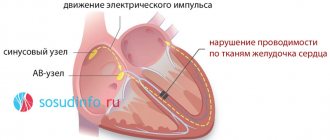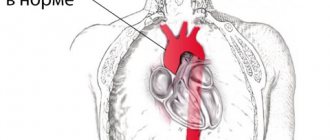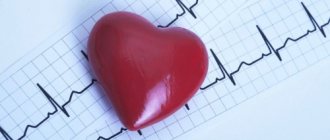There are a huge number of situations when you feel dizzy. In particular, people encounter a similar problem when they suddenly change their body position, for example, getting up from a sofa or chair. And here many questions arise: why is this happening and is this not a symptom of some kind of pathology?
Answered by Elen Mkhitaryan, Ph.D., neurologist, senior researcher at the Laboratory of General Geriatrics and Neurogeriatrics of the Russian Gerontological Research and Clinical Center, Russian National Research Medical University named after. N.I.Pirogov Ministry of Health of Russia :
— Let's start with the fact that dizziness is a symptom that can occur in many diseases. When they begin to treat dizziness, this is wrong, because it is necessary to treat the diseases that led to it. And these are more than 80 diseases and conditions.
What folk remedies will help with weakness and dizziness? More details
The mechanism of dizziness
Dizziness when changing body position occurs due to the fact that some organs responsible for orientation in space begin to work incorrectly and fail.
Violations can occur in the periphery and in the central organs. The peripheral organs responsible for perception of the world and orientation in space include:
- The human eyes are responsible for receiving images, interpreting them, and transmitting nerve impulses to the brain. The human brain processes the received signals and understands what surrounds the person at the moment.
- The inner ear with its labyrinth system allows a person to perceive the true position in space.
- Muscle receptors transmit information to the brain via nerve fibers about the location of the body and its limbs in the surrounding space.
If any malfunctions occur in the functioning of these organs, the human brain incorrectly perceives the information provided, so the problem of loss of balance and orientation, and dizziness arises.
Problems in the functioning of the central nervous system are indicated in case of damage to the following departments and organs: the cerebellum, the temporal parts of the brain, the autonomic nuclei of the brain stem.
From these sections, information is transmitted to the muscle system. Incorrect transmission of information impulses is fraught with the appearance of unpleasant symptoms, manifested in the form of dizziness.
The causes of dizziness when standing up can be much more serious. Dizziness when tilting your head down can be caused by a number of diseases:
- Osteochondrosis of the neck. In this case, the patient feels a crunch in the neck, pain when bending over.
- A tonometer can tell you why you feel dizzy. With low blood pressure, you feel dizzy when standing up, when you start to go to bed, during the day while walking, or at rest.
- Meniere's disease is characterized by symptoms such as hearing problems and dizziness. Progression of the disease can cause hearing loss.
- If you feel dizzy when turning, the person may have otoliths in the middle ear area. These formations (stones) appear in older people and contribute to the appearance of dizziness when turning the head.
- Inflammatory processes in the nasopharynx and ear canals cause fluid accumulation and compression of the vascular walls, which causes a lack of blood circulation and dizziness when tilting the head down.
- A migraine attack is characterized by severe pain in the head. Even when you lie down, your head continues to spin. Lost orientation in space when getting out of bed.
- VSD is associated with a weakening of the tone of the vascular walls. Such patients often complain: I feel dizzy when I get up or lie down.
- With vestibular neuritis, in addition to dizziness, vomiting may be observed. After proper rest, the symptoms of the disease disappear.
- Hernia formations in the spine lead to compression of the blood vessels, and an attack of dizziness occurs in any position of the body.
- Large blood losses can cause signs of dizziness. For example, after surgery or childbirth, people very often complain that they feel dizzy when bending down or when walking.
Feeling dizzy when getting out of bed: what could the symptom indicate?
Almost all of us periodically ask ourselves the question: “Why do I get dizzy when I get out of bed?” First of all, it should be noted that dizziness during a sharp rise is not a disease in itself. Often this is just a signal from your body about problems with its functioning. But if dizziness is not an isolated case for you, then this should be a reason to go to the doctor and get diagnosed.
Vertigo (the scientific term for dizziness) sometimes occurs as a result of a lack of oxygen to brain cells. However, a clear etiology for this condition is difficult to identify. First you need to understand the additional symptoms.
The most common causes of pathology
- Cervical osteochondrosis. A disease that occurs due to lack of physical activity, in other words, a sedentary lifestyle, as a result of injury or congenital predisposition. Typically, the vertebrae located in the cervical spine fit tightly together. Due to various reasons, displacement of the vertebrae can occur, which, in turn, causes compression of nerves and blood vessels, of which there are many in the cervical spine. When the vertebral artery is compressed, problems appear with the blood supply to the brain, which causes dizziness.
- Vegetovascular dystonia. A disease leading to disruption of the regulation of the cardiovascular, respiratory and other body systems. It is often congenital and associated with fetal pathology. It manifests itself with many symptoms, including dizziness.
- Spinal hernia. With this disease, dizziness appears, similar to the sensation caused by alcohol, in other words, intoxication. If this happens frequently, you should immediately consult a competent doctor. The process of removing a hernia is extremely painful, dangerous, and recovery takes a lot of time, so it is better not to delay going to the hospital, making a diagnosis and treatment.
- Inflammatory processes in the nasopharynx and inner ear, leading to swelling. Such inflammations cause swelling of the labyrinth channels, fluid and mucus are released, which puts pressure on the cells responsible for the orientation of the body in space. When tilting the head, rotating or changing position, dizziness occurs.
- Hypotension. In other words, low blood pressure, which leads to improper movement of fluid in the inner ear, causing pain, dizziness and nausea.
- Neuritis of the vestibular nerve. This occurs mainly as a consequence of herpes zoster and various infections. Dizziness in this disease is accompanied by the illusion of spinning in a circle, vomiting, excessive sweating, increased body temperature and appears after sleep.
- Various viral diseases. Dizziness is one of the body’s reactions to intoxication.
- Hypertension. High blood pressure can also cause dizziness, nausea, and darkening of the eyes.
- Injuries to the head, spine, for example, concussion.
- Multiple sclerosis.
- Diabetes. Low or high blood sugar levels can cause not only dizziness and imbalance, but also weakness and nausea.
- Mental disorders. There is such a thing as psychogenic dizziness, which appears under strong emotional stress.
- A side effect from taking various medications, antibiotics, sleeping pills, tranquilizers, antihistamines.
If an attack of dizziness lasts a long time, you must immediately call an ambulance and leave the patient alone, in a supine position, until it arrives. There is no need to do anything else yourself.
How to choose the right drug
Without diagnostics, you should not self-medicate. By taking pills on their own, people, especially the elderly, risk their health. Many medications, including painkillers, tranquilizers, and antidepressants, some of which are sold without a prescription, have side effects.
Important information
Medicines for dizziness in older people are prescribed only by a doctor after undergoing a diagnosis. Malaise may be associated with both fatigue and tumor growth.
It is not recommended to select medications on your own, since dizziness may also indicate insufficient oxygen supply to the body, ENT diseases, and circulatory problems. In addition to discussing symptoms with a specialist, it is worth clarifying under what circumstances vertigo occurs and what contributes to it.
Even when a doctor prescribes medications, it is worth monitoring the condition. Some pills are not suitable for the body and cause negative consequences. These drugs include groups of analgesics or painkillers, antianginal drugs, diuretics, antibiotics, antihypertensives, non-steroidal anti-inflammatory drugs, antidepressants with tranquilizers, hypnotics and anticonvulsants. We are not talking about all representatives of groups, but about the majority.
Particularly toxic are drugs belonging to the category of glycoside antibiotics. Their prominent representatives are Neomycin with Streptomycin, Kanamycin.
Tablets for dizziness
It is imperative to take medications for dizziness in old age if you have health problems. They help restore blood circulation and oxygen supply. Such products belong to the group of nootropics.
Frequent dizziness can be eliminated by taking the following medications:
- Glycine;
- Piracetam:
- Cinnarizine;
- Vinpocetine.
The first drug is different in that it has no side effects. It helps accelerate metabolic processes in the brain, because it is because of their disruption that oxygen starvation occurs. This product is safe even for children. Its constant use helps to completely eliminate dizziness.
With the help of Piracetam, blood flow in the head is normalized. Systematic use leads to the achievement of effect. It is not recommended to use the drug after 16:00 in the evening, as it provokes brain activity, which can interfere with sleep.
Cinnarizine or Stugeron dilates blood vessels in the brain without increasing blood pressure. The drug normalizes the functioning of the vestibular apparatus.
The principle of action of Vinpocetine is to improve blood supply to the brain and oxygen saturation.
If unpleasant symptoms are associated with a disorder of the vestibular apparatus, Betahistine is prescribed. In addition to eliminating dizziness, it affects hearing, improving it.
In addition to the popular nootropics listed above, Cereton is often prescribed. It is also aimed at restoring and improving blood supply to areas of the brain, and also improves memory and concentration.
All medications aimed at eliminating vertigo must be taken for at least three months. Only in this case will it be possible to achieve the desired result. Depending on the cause of the disease, the course of treatment may increase.
Preparations based on natural ingredients
Despite the fact that most drugs consist of synthetic components, even among nootropics that effectively eliminate dizziness in older people, there are those consisting of natural components.
Many people prefer natural drugs, arguing that the drugs are less harmful and do not cause side effects. As mentioned above, there are also synthetic drugs like Glycine, which does not have negative consequences.
Helpful information
The advantage of drugs based on natural ingredients is that they are suitable for people of any age, as well as those who are especially sensitive. The most popular drugs for eliminating dizziness are Vinpocetine and Bilobil.
The principle of operation of the first is described above. Its main active ingredient is Vinca minor. Bilobil is developed based on the medicinal plant Ginkgo Biloba. The drug improves the flow of oxygen and blood to the brain, reduces the level of platelet aggregation, and increases concentration and attention.
But the disadvantage of such drugs is that their minimum period of use is 3 months. And the number of techniques varies from one to three.
Diagnostics
Self-diagnosis will not give accurate results, since it is necessary to take tests or undergo examinations. Typically, specialists use the following diagnostic methods:
- lung examination;
- Ultrasound of organs (depending on symptoms);
- blood and urine tests;
- CT, MRI of the head;
- X-ray of the spine.
As a self-test that can determine the body's inability to maintain normal blood pressure when a person is standing, which is the cause of dizziness, you can use this method:
- While standing, measure your pulse and blood pressure.
- If the result is stable, go to bed, then get up and repeat.
- The test is repeated no earlier than after 5 minutes.
- The procedure must be repeated after about 10 minutes to establish the body’s recovery ability and normalization of blood pressure.
If the pulse quickens by up to 11 beats, then this is a normal condition, from 12 to 18 - there are minor deviations from the norm, but they do not pose a threat, if more than 19, then this is a dangerous condition that can lead not only to dizziness, but also to fainting.
For people who have had dizziness since birth, such conditions are not a cause for concern; they usually go away quickly.
These are often the following methods:
- reflexology;
- relaxing treatments;
- physiotherapy;
- aromatherapy;
- medications: antihistamines, blood pressure normalizers, vestibulopathic.
Self-medication is not recommended, since the cause may be more serious than the person himself assumes.
What can make you feel dizzy when you lie down?
Dizziness while lying down is an unpleasant and common phenomenon. When a person assumes a horizontal position, his cardiovascular system must rearrange its work and adapt to the new position of the body in space. If you feel dizzy as soon as you lie down on the bed, even a healthy person may have this condition. It can also warn about the development of a certain disease. This occurs if a person lies on his back, on his right or left side, or if there is a sudden change in body position from vertical to horizontal.
Also, unpleasant sensations may appear when throwing back the head, or when a person tries to suddenly change position. A person may feel nauseous and may experience headaches. He tries to avoid sudden changes in position.
By the way, dizziness can accompany alcohol intoxication and a hangover. A drunk person suffers not only from dizziness, his blood pressure rises, his pulse quickens, he experiences confusion, and an unstable emotional state. In this case, you should stop drinking alcohol, and if you cannot do this, you should consult a narcologist.
Factors that can provoke dizziness include:
- Pathologies of the inner ear.
- Diseases of the endocrine system, hormonal imbalances.
- Increased pressure inside the eyes.
- Pathologies of cerebral vessels.
- Diseases of the central nervous system.
- Neuritis of the vestibular apparatus.
- Spinal injuries (closed or open).
- Orthostatic collapse.
- Meniere's syndrome.
- Osteochondrosis. Due to poor posture when a person lies down or takes a vertical position, the vertebral artery does not work well. It is quite large and supplies blood to all parts of the spine and brain. The blood flows poorly, and the brain begins to malfunction.
- Inflammation of the membranes of the brain.
- Hypertension.
- Spinal hernia.
- Vegetovascular dystonia.
- Infection of the nasopharynx and ears.
- Trauma, alcoholism. This leads to disruption of the transmission of nerve impulses to parts of the brain. With excessive alcohol consumption, as with a head injury, many neurons die and connections between brain cells are disrupted.
The reasons that we have listed are not the only ones, but they most often lead to dizziness. If this condition interferes with your work, rest, and even sleep, you should definitely share your problem with your doctor. He will help determine the provoking factor and, based on the information received, will prescribe the most suitable medicine for a particular patient. The final decision regarding therapy remains with the doctor.
Be sure to describe your condition to the doctor in as much detail as possible. It is necessary to tell when dizziness appears, how long it lasts, if the headache is on the left or right, whether there are other symptoms such as nausea, vomiting, weakness, etc. If you had a TBI, tell us which side of your head was affected and what sensations you experienced.
Summing up
Severe morning dizziness can occur due to basic oxygen deprivation of the brain. It occurs due to a sharp drain of blood from the main areas of the brain. Also the basis is various changes in the general well-being of a person or more serious illnesses.
For this reason, consultation with a specialist and treatment are so important. Features of qualified treatment depend on the causes of the condition. It may only take one competent procedure performed by an experienced doctor.
Regardless of what causes dizziness, there is no need to fear serious complications and consequences. The problem completely goes away after completing a course of a gymnastic complex aimed at improving the functioning of the vestibular apparatus.
If the condition and pathology are advanced, professional treatment will be required under the mandatory supervision of a doctor. Don’t panic, but immediately visit a professional who will prescribe competent and appropriately effective treatment.
Diseases that cause dizziness
Dizziness often misleads both patients and doctors. But we can identify several pathologies for which this symptom is most characteristic.
BPPV
Often episodic dizziness is a symptom of BPPV - this is a pathology of the labyrinth - benign paroxysmal positional vertigo. The development of this disease is provoked by excessive deposition of calcium salts (otoliths) in the labyrinth, which cause irritation at a certain position of the head, manifested by dizziness.
The disease is characterized by short-term attacks of severe dizziness, which may be accompanied by nausea, sometimes vomiting and nystagmus (involuntary rapid eye movements). The attacks go away on their own or after vestibular exercises. This pathology can be dangerous if there is a sudden attack while driving a car or while at height.
Meniere's disease
Inflammatory non-purulent disease of the inner ear. It is characterized by a critical increase in the volume of endolymph, a fluid that is located in the labyrinth (inside the semicircular canals). As a result of a sharp increase in intralabyrinthine pressure, endolymphatic hydrops occurs, which leads to edema and inflammation, which is manifested by systemic dizziness. Nausea, vomiting, tinnitus, and increasing hearing loss (hearing loss) also occur. Balance is severely disturbed, to the point that the patient cannot even sit. The disease is quite rare, in severe cases it leads to complete deafness, and is dangerous due to sudden attacks.
Cerebellar lesion
The cerebellum is located at the back of the brain. Receives signals from the muscles of the limbs and is responsible for the formation of posture and coordination of movements. A “drunk” gait when sober is a possible sign of a cerebellar tumor. The patient walks with his legs spread wide apart and cannot walk “on a ruler”; he is forced to constantly catch himself for stability. This condition is regarded as dizziness. These symptoms of impaired coordination of movements of central origin with damage to the cerebellum also arise as a result of impaired blood supply (ischemia, infarction), and during intoxication.
Dizziness due to alcohol intoxication
Ethyl alcohol selectively accumulates in the brain and causes brain damage. Due to damage to the cerebellum and vestibular nuclei of the brain stem, balance and coordination of movements are impaired even at the mild stage of alcohol intoxication. It also depends on the body’s individual susceptibility to alcohol, the condition of the liver and general well-being.
Typically, after alcohol poisoning, dizziness decreases when lying down and increases when trying to stand up. Sometimes your head may feel dizzy from a hangover for several days, until the body is completely cleansed of the toxic breakdown products of ethanol. Drinking plenty of mineral water helps speed up this process and eliminate the negative effects of alcoholic dehydration.
"Seasickness"
Motion sickness, accompanied by nausea and dizziness, occurs not only at sea, but also in any moving vehicle. In women, this pathology occurs more often, but it can also affect experienced sailors.
Helpful information
One of the causes of this condition is a conflict between visual perception and signals coming from the vestibular apparatus of the inner ear. That is, the eyes see a flashing picture from a train/car window, the movement of waves on the sea - while the vestibular apparatus does not register the movement of the body.
To reduce dizziness, you need to harmonize the signals entering the brain: move your legs, imitating movement, or try to look at the horizon line, where there is no flickering. Sucking and chewing movements ease the condition: sailors suck on matches for this; you can use lollipops, crackers, citrus fruits, and mint chewing gum. The best remedy for seasickness is sleep. As a preventive measure, you can take Aeron, Cinnarizine (half an hour before the start of the trip/before sailing).
Other treatments for dizziness in older people
Dizziness in older people is best treated by a combination of medications, folk remedies and the following methods:
Physiotherapy. Properly selected exercises strengthen the spine and stimulate the functioning of blood vessels. Regular exercise can sometimes give more significant results than taking medications.
- Physiotherapy. Modern technologies in this area are multifaceted; water, sound, light, magnetic, and laser treatments are available. Regular implementation of these procedures has a very beneficial effect on the nervous system.
- Reflexology, in particular acupuncture. It normalizes the functioning of the central nervous system, relaxes muscles and activates blood circulation.
- Psychotherapy. The likelihood of dizziness in older people is significantly reduced if measures are taken to relieve nervous tension and anxiety.
Entering into old age will be much easier if you take care of your health in advance. The physical capabilities of the body directly depend on compliance with the daily routine, proper nutrition, intensity of exercise, and abuse of bad habits. Think about what is easier - to prevent the disease or to treat it later? Provide your body with normal functioning, do not neglect examinations if you are already about sixty. Be active, walk more, look at the world positively. Then you definitely won’t have to deal with bouts of dizziness.
Additional recommendations
In order for the treatment to be effective and not take a long time, it is important to follow some recommendations. So, the following measures will help speed up recovery: . proper nutrition and avoidance of junk food; exclusion of coffee and strongly brewed black tea from the diet (it is better to drink only green tea); moderate physical activity (it is also important to spend enough time walking in the fresh air); refusal of alcoholic beverages and cigarettes; visiting the pool (in the absence of contraindications); adherence to sleep and rest patterns.
- proper nutrition and avoidance of junk food;
- exclusion of coffee and strongly brewed black tea from the diet (it is better to drink only green tea);
- moderate physical activity (it is also important to spend enough time walking in the fresh air);
- refusal of alcoholic beverages and cigarettes;
- visiting the pool (in the absence of contraindications);
- adherence to sleep and rest patterns.
Diseases that cause dizziness
Often, dizziness can be caused by a serious illness. If some symptoms appear, you should immediately consult a doctor for diagnosis. Despite the fact that there is quite a lot of traditional medicine advice on the Internet, however, in this case you should not resort to it, since only a professional doctor can prescribe the correct treatment.
Most often, circulatory disorders are caused by disturbances in the functioning of the cardiovascular system and blood vessels.
The main tests that are needed for a comprehensive diagnosis are MRI, X-ray of the cervical vertebrae, general and biochemical blood tests. Only after they have been submitted can a final conclusion be made.
Diseases that cause dizziness:
Vegetative-vascular dystonia. It usually only bothers older people. In addition to dizziness, the patient experiences weakness throughout the body, hypotension, and constantly feels drowsy. The head may feel dizzy not only in the morning, but throughout the day, when changing positions and in the dark. The main cause of the pathology is low blood pressure. Glaucoma is damage to the optic nerves, which distorts the perception of the external environment
As a result, it is difficult for a person to focus on one object, and when trying to turn his head or look over his shoulder, he experiences severe discomfort and tinnitus. Stroke. It happens when the brain receives insufficient nutrition, which is where the main disorders are caused.
For some time, limbs may swell, speech may be impaired, and fainting may occur. Often a person experiences memory problems and cannot remember what to do half an hour ago. Concussions and head injuries of varying severity resulting from falls, bruises, and accidents. The person experiences nausea and severe pain when trying to get up or stand on their feet.
Vertigo in men and women
Some doctors claim that dizziness is more common in women and girls than in the stronger sex. However, this is primarily due to the fact that it is mainly ladies who complain about dizziness, since men are used to keeping everything to themselves.
Possible causes of violations:
- Inadequate rest, lack of sleep, insomnia.
- Disorders of the cardiovascular system and heart muscle.
- Bad habits, abuse of alcohol and caffeinated drinks, nicotine addiction.
- In older women, menopause and hypertension.
Also, vertigo can be one of the pronounced symptoms of developing diabetes mellitus or poor nutrition. In this case, after visiting a doctor, you should reconsider your diet and exclude harmful foods from it or reduce the amount of their consumption.
One of the recommendations of experts is to spend less time in stuffy rooms and constantly ventilate the room. Dizziness may occur because the brain does not receive enough oxygen.
Why girls are more prone to vertigo:
- Due to physiological processes occurring in a girl’s body (for example, menstruation or pregnancy), she is more susceptible to anemia. Therefore, with sudden movements and heavy lifting, she experiences discomfort much more often.
- During pregnancy, your head may feel dizzy for a long time. This is due to the fact that in later stages a woman’s uterus expands and compresses the blood vessels, thereby reducing blood flow to the heart. This is a natural process that normalizes itself after childbirth.
- It has been proven that girls are more likely to suffer from mental disorders and emotional overload. Their nervous system cannot be called weak, however, it reacts more acutely to external changes. Due to constant stress and psychological discomfort, girls can sometimes experience dizziness.
Prevention and precautions
Measures to prevent dizziness include the following:
- Timely detection and treatment of diseases that cause dizziness.
- Leading an active lifestyle and giving up bad habits.
- Drawing up a diet in which fresh foods rich in vitamins are preferred, and too fatty, salty and canned foods are excluded.
- Exercise and minimizing stressful situations.
Precautions for dizziness include the following:
- After lying down, you should not abruptly take a sitting or standing position.
- After waking up, you should not jump up immediately. It is recommended to take deep breaths several times, stretch, and massage your limbs.
- If it is necessary to repeat sudden movements, the cycle begins with smooth actions, increasing amplitude and sharpness.
- Do not stay in a static position for a long time, get up from time to time, move and warm up.
- Before standing up, make sure not to hit anything if dizziness does occur.
Symptoms of benign positional vertigo
The following symptoms will help you suspect BPPV:
- dizziness when moving the head, especially often it appears in a lying position when turning on the right or left side, you can also feel dizzy when throwing it back;
- as a rule, the attack begins in the morning, when a person wakes up and begins to turn over in bed;
- the attack does not last long (up to 1 minute) and passes easily;
- dizziness may also be accompanied by nausea and vomiting.
Sometimes severe dizziness
occurs at night, during sleep, causing the patient to wake up.
Dizziness
may be accompanied by nausea and vomiting. The disease has a benign course: periods of exacerbation, when attacks are repeated daily, followed by spontaneous remission, which can last several years.
Causes of dizziness
The etiology of the disease in most cases remains unknown. It is believed that benign positional vertigo may occur after a traumatic brain injury or as a result of a viral infection. Links between benign positional vertigo
and no vertebrobasilar insufficiency. Women get sick about twice as often as men. The disease can begin at any age, most often at 50-60 years of age.
Symptoms
Another commonly prescribed drug is piracetam. It belongs to the nootropic drugs acting on the central nervous system. Under their influence, cognitive processes improve, thereby improving perception, memory, concentration and awareness. The drug does not have a calming or mentally stimulating effect.
Piracetam increases blood flow through the vessels into the brain, affecting red blood cells, platelets and the vascular wall: it increases the elasticity of red blood cells, reduces platelet formation and reduces the likelihood of cerebral vascular spasms. The drug is administered intravenously or intramuscularly.
Side effects may occur while using the drug. These include nervous system disorders such as ataxia (impaired coordination of movements), imbalance, exacerbation of epilepsy symptoms, drowsiness, insomnia, feeling tired, headaches; gastrointestinal disorders (vomiting, diarrhea, abdominal pain, pain in the upper abdomen). On the part of the immune system, hypersensitivity reactions are possible: agitation, anxiety, confusion, Quincke's edema, dermatitis, itching, urticaria. If you have such problems, you should tell your doctor.
Vestibular rehabilitation
In cases of damage to the musculoskeletal and vestibular systems, which are accompanied by mild dizziness, vestibular rehabilitation can be effective. This is training to support balance, which allows you to compensate for dizziness. It is also prescribed to people after neurosurgical operations (neurectomy, labyrinthectomy) after traumatic brain injury in patients with anxiety neuroses, Meniere's disease (when attacks occur less than once a month), central nervous system damage and mixed ones. This procedure is not suitable for people who experience dizziness and imbalance periodically in the form of attacks.
Diseases of the cardiovascular system. Hypotension and heart disease can cause dizziness that precedes syncope and syncope. The patient feels lightheaded, a feeling of lightheadedness, fear, and increased heartbeat.
Neurological disorders. In this case, a person experiences instability when walking, a “drunk” gait, which occurs when moving and disappears when the patient lies and sits. Such dizziness is characteristic of diseases such as epilepsy, migraine, etc.
Why do you feel dizzy when trying to lie down?
If you lie down and feel a little dizzy, you should look for the cause in the neck area. When changing body posture, the cervical vertebrae are compressed, which impairs blood flow to the brain. Adopting a horizontal position causes the manifestation of ear diseases.
Lying down without feeling dizzy can be difficult if you have recently had a concussion or have old head injuries. Even lying on your back can cause you to roll over awkwardly, causing dizziness. The presence of cervical osteochondrosis in a person often causes dizziness when lying down. In addition, nausea and neck pain may occur. The situation is very unpleasant and special diagnostics will be required: MRI, X-ray.
Main reasons
In medical practice, there are a number of reasons why you feel dizzy when standing up.
Possible ones include the following:
- Anemia. Dizziness when you stand up occurs as a result of a lack of oxygen that supplies the brain and tissues.
- Severe fatigue, overwork.
- Dehydration of the body.
- Poor nutrition. Doctors diagnose such causes quite often, especially in people who use diets or are unable to eat normally as a result of a busy work day. The body simply does not receive useful substances, it is exhausted, and you may feel slightly dizzy when standing up.
- Emotional tension and frequent stress.
- Failures or diseases of the vestibular apparatus.
- Use of medications. Feeling dizzy due to the side effects of certain medications, especially if they are used for a long time or they are very strong.
- Diseases of various systems in the body. The cause may be in the nervous, circulatory or vascular system. In this case, the tissues cannot be properly supplied with oxygen, and if you suddenly get out of bed, you will feel dizzy.
- Injuries to the head, neck or spine.
- Endocrine system disruptions. The reasons why ailments appear are hidden in the hormonal background, when a person’s body produces large or insufficient production of certain hormones.
- Diseases of the inner ear.
- Pathologies of the nervous system.
- Visual fatigue. Similar reasons can be in eye diseases, as well as in people whose work is related to observational activities. In some cases, workers at the computer experience dizziness when standing up.
- The release of adrenaline into the blood can cause dizziness when standing up suddenly.
- The symptom occurs in women during menopause, pregnancy and menstruation due to hormonal changes in the body.
- Adverse habits can also contribute to the deterioration of the condition. For example, smokers dilate blood vessels, and people who abuse alcohol develop problems in the nervous system and vestibular apparatus.
- Brain tumors.
- Migraine attacks.
- Poisoning from food or chemicals.
There are many reasons why you feel dizzy when getting out of bed, so for an accurate diagnosis it is important to consult a doctor
Only a doctor can find the true provoking factors, and based on the data obtained, the correct treatment is prescribed
Only a doctor can find the true provoking factors, and based on the data obtained, the correct treatment is prescribed.
Dizziness is not always the result of pathological problems. If, when standing up suddenly, dizziness appears, which quickly passes and does not occur constantly, then this is not a symptom of the disease.
The reason is that the body cannot coordinate as quickly. In this case, a few seconds are enough for the condition to return to normal.
Those who say that when I suddenly stand up, I feel dizzy, my heart beats faster, and there may also be an increase or decrease in pressure, then the reasons may be hypotension or hypertension.
For treatment, it is better to consult a doctor who can recommend medications to normalize blood pressure.
What is the danger and when should you see a doctor?
Dizziness is a fairly common complaint among patients when visiting a doctor.
This symptom can occur due to a large number of reasons:
- If dizziness occurs infrequently and without accompanying symptoms, then there is no danger to health.
- If the reason lies in overwork , stressful situations, fasting, poor nutrition, etc., then you need to bring your well-being back to normal, your daily routine and diet, and dizziness will disappear on its own.
- If dizziness occurs frequently and is accompanied by multiple symptoms, you should consult a doctor as soon as possible. In case of fainting, numbness of the extremities, nausea, vomiting, it is necessary to call an ambulance. Only a doctor can make a correct diagnosis after conducting the necessary examination.









